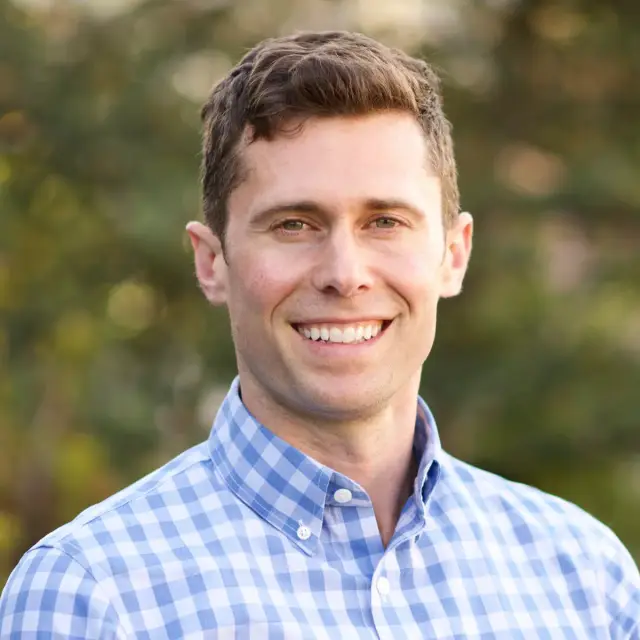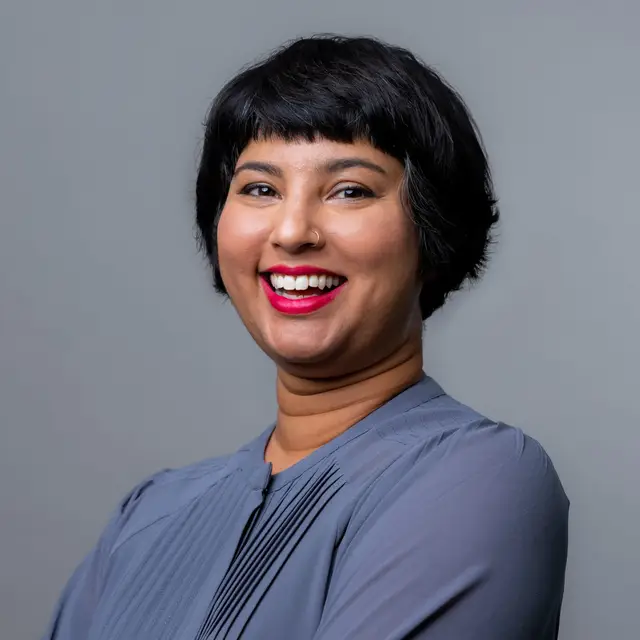Finding Purpose and Passion in Life: A Conversation with Sheila Akbar, COO of Signet Education

By GP LeBourdais
Fulbright Scholar, and the Head of Strategic Initiatives at Polygence

By Sheila Akbar
Counselor at Signet Education
9 minute read
High school can often seem like a prelude to “real life.” We’re expected to become more independent, yet still follow directions. We’re told to make good decisions after learning we’ve just made bad ones. And even though we’re not required to know what we want to do with our lives, we’re asked to make decisions about what to study in college that will shape the course of our careers.
But students are in some ways better prepared for college than ever. In a significant shift from previous generations, high school students today say they’re going to college to get a job. Not to find themselves, or learn about different people, careers or cultures, but to find a way to pay the bills and build a sense of purpose along the way. This mindset, highly mature in its foresight, indicates GenZ cares more about finding their way early in life than some give them credit for.
To learn how students can be more intentional about what they choose to study in high school and beyond, Polygence educator Dr. GP LeBourdais sat down to talk with Dr. Sheila Akbar, the President & COO of Signet Education, a full service tutoring, test prep, coaching, and admissions firm, which she has been helping build since 2010. And her own academic journey–which includes two PhDs and lots of left turns–provides a great example of how developing a set of personal values can help guide you to a meaningful life.
Do your own research through Polygence!
Polygence pairs you with an expert mentor in your area of passion. Together, you work to create a high quality research project that is uniquely your own.
Realizing Medicine was the Wrong Path
Sheila’s story will resonate with any child of successful parents, especially those from families who immigrated to the United States. Originally from Bangladesh, her parents moved to a small town in Michigan. It was clear from a young age that both Sheila and her brother were smart, so her parents said they could either go to the University of Michigan, the great state school next door, or Harvard. Other options weren’t really discussed. Since her father was a doctor, she and her brother were expected to become doctors, too. “It was not even a conversation that we were really allowed to have,” she reflected: “It was just. No [you’re doing it]... it was, like, in the water.” Luckily for her, math and science came naturally. What’s more, it was easy to see how these fields were useful to her father in his career as a physician.
So things seemed to be going according to plan. After ‘working her tail off’ in high school, Sheila got into Harvard. “I went off thinking I would be a premed, because that was what was expected of me.” But as is so often the case, Sheila found opportunities in college to dive deeper into things she had initially fallen in love with during high school. She discovered this “beautiful poetry that came out of the Muslim tradition, particularly in what we now know as Iran and Pakistan, and parts of India and Bangladesh, where my family is from. And I had this sort of romantic idea…I would study poetry, and I would learn to read this poetry in its original language. But I would also do my pre-med requirements on the side.” Sheila declared a major in Near Eastern Languages and Civilizations—”and I was the only [graduating student in that] major in my year”—receiving lots of great attention from her professors.
When the time came to register for the MCATs in her junior year, however, a different path beckoned. During our conversation, Sheila and I discussed how much pressure smart children of successful parents experience. When your parents see that you have natural intellectual gifts, they often encourage you to pursue career paths that guarantee financial stability: doctors, lawyers, engineers, etc. This in itself is a loving motivation from parents; they want their kids and grandkids to be happy, healthy, and comfortable. High-paying professions provide a high likelihood of those things coming to pass. But ultimately, we agreed, parents just want to see us happy, safe and not struggling.
Do your own research through Polygence!
Polygence pairs you with an expert mentor in your area of passion. Together, you work to create a high quality research project that is uniquely your own.
The career paths of parents rarely carry through to their children. The nature of work changes dramatically from generation to generation. Some studies suggest that Gen Z could change jobs up to 10 times between the ages of 18 and 34. This means that our parents’ idea of choosing a profession and sticking with it until you retire is something that few of us will experience in our careers.
For Sheila, telling her parents she had decided not to go to medical school was hard. “I told my dad first,” she said. “I felt that it was my dad's dream for me, you know. We were driving somewhere, and I was like Dad, I've been thinking, you guys really helped me put a priority on my education and making an impact in the world. And I'm just feeling like I need to do more than be a doctor…I think my talents lie elsewhere.”
Though it may have been hard, Sheila’s parents accepted her choice. Perhaps it was because they realized they would not be able to change the mind of the strong-willed, rebellious daughter. But even ten years later they said the same thing: “You know you. I think you made the right decision.”
Choosing not to do something—effectively crossing it off a list of possibilities—can be a challenging decision that takes real grit to make. It also opens onto a new world of other possibilities that can be even more difficult to parse. After graduating, Sheila embraced a gripping array of those possibilities.
Your Project Your Schedule - Your Admissions Edge!
Register to get paired with one of our expert mentors and to get started on exploring your passions today! And give yourself the edge you need to move forward!
From Wall Street to Education: Finding a True Calling
As a Harvard graduate (even one who majored in poetry), she was highly recruited on Wall Street. For two years, she worked in financial services in New York, earning lots of money and developing analytical and quantitative skills. But she soon found herself looking for something more fulfilling. She considered applying to film school. She got an internship at an architecture firm. Then, as she felt the pull of her undergraduate studies coming back, she decided to return to academia, first for a masters degree in Near Eastern Languages and Civilizations at Harvard, and then at Indiana University, where she earned a double PhD in Comparative Literature and Near Eastern Languages and Cultures.
It was during graduate school that Sheila began working in academic tutoring, helping students unlock their potential. Immediately, she felt invigorated by providing this kind of guidance to young people looking to pursue something that is meaningful to them.
Finding Your “Why”: The Concept of Ikigai
In the decade plus she’s worked at Signet, Sheila has come to apply lessons she learned along her own personal journey to an approach that empowers students to identify their values from an early age.
This approach is rooted in the Japanese concept of Ikigai, which translates to a sense of meaning or purpose in life. You can think of ikigai as a Venn diagram where four spheres overlap:
What you love
What you are good at
What the world needs
What you can be paid for
To help students achieve this kind of intentionality in what they choose to study or do for work, Sheila deploys exercises that identify core values. She asks questions like “What are you really aiming for? What does success look like for you here? And then how are we going to work backward and use your strengths to help you get there?” Whether you value a flexible schedule, high pay, the culture of a big city, or the calmness of a rural homestead, it’s important to see those values as strengths–rather than as weaknesses or limitations–that will help you identify subjects or jobs that fulfill you.
A Sense of Purpose and Mental Health
As Polygence noted in a recent white paper on supporting student mental health, finding a sense of purpose also helps students to become more resilient. Relatively small failures or obstacles, like a bad grade on a test or moving far away from loved ones, matter less when we have a bigger meaning in our lives, like advancing the cause of social justice or developing medicines that help millions of people.
That is not to say that failures and obstacles are meaningless. In fact, it’s important to identify those challenges in order to develop ways of coping with them. Sheila had three great tips on how to handle these failures, obstacles or otherwise stressful decisions.
Take Care of Your Body
“You know, I really believe in napping,” she laughed during our talk. “There is a huge power in napping. People are starting to come around to this, but when I get really stressed out I take a nap.” Although it may be difficult to relax when we’re stressed, allowing the body and mind to recharge before tackling a difficult task is a proven way to make better decisions. For you, it might be eating something, having a glass of water, or taking a walk.
Visualize
“The second thing I do is to think through all the possible scenarios: What would happen if I did this, or if I did that, what would the next kind of thing be?” Playing out these scenarios can help you to visualize an array of possible resolutions and how you would react to each of them, rather than fixating on a single bad outcome. It’s important not to dwell excessively on these possibilities so try to time box this kind of visualization.
Act
Once you’ve taken a beat to rest and visualize, it’s time to act. “Once I hit on something that just makes me feel in my body like ‘oh, yes, there is hope here, there is a path forward,’ I just start doing something. I take some sort of action.” This action not only helps us to feel more in control of our destiny, it also trains our mind to believe that we are able to handle whatever comes at us. “We live in an unpredictable world, but we should be able to trust that we can handle whatever it is,” Sheila reflected, which is a great definition for the concept of resilience broadly.
Certainly, this is great advice for everyone, not just students near the beginning of their academic journeys.
If Sheila’s life story or approach to personal development resonated with you, please share your thoughts with us or reach out to the team at Signet. To watch the whole recording of our conversation, click here.
Do Your Own Research Through Polygence
Your passion can be your college admissions edge! Polygence provides high schoolers a personalized, flexible research experience proven to boost your admission odds. Get matched to a mentor now!"